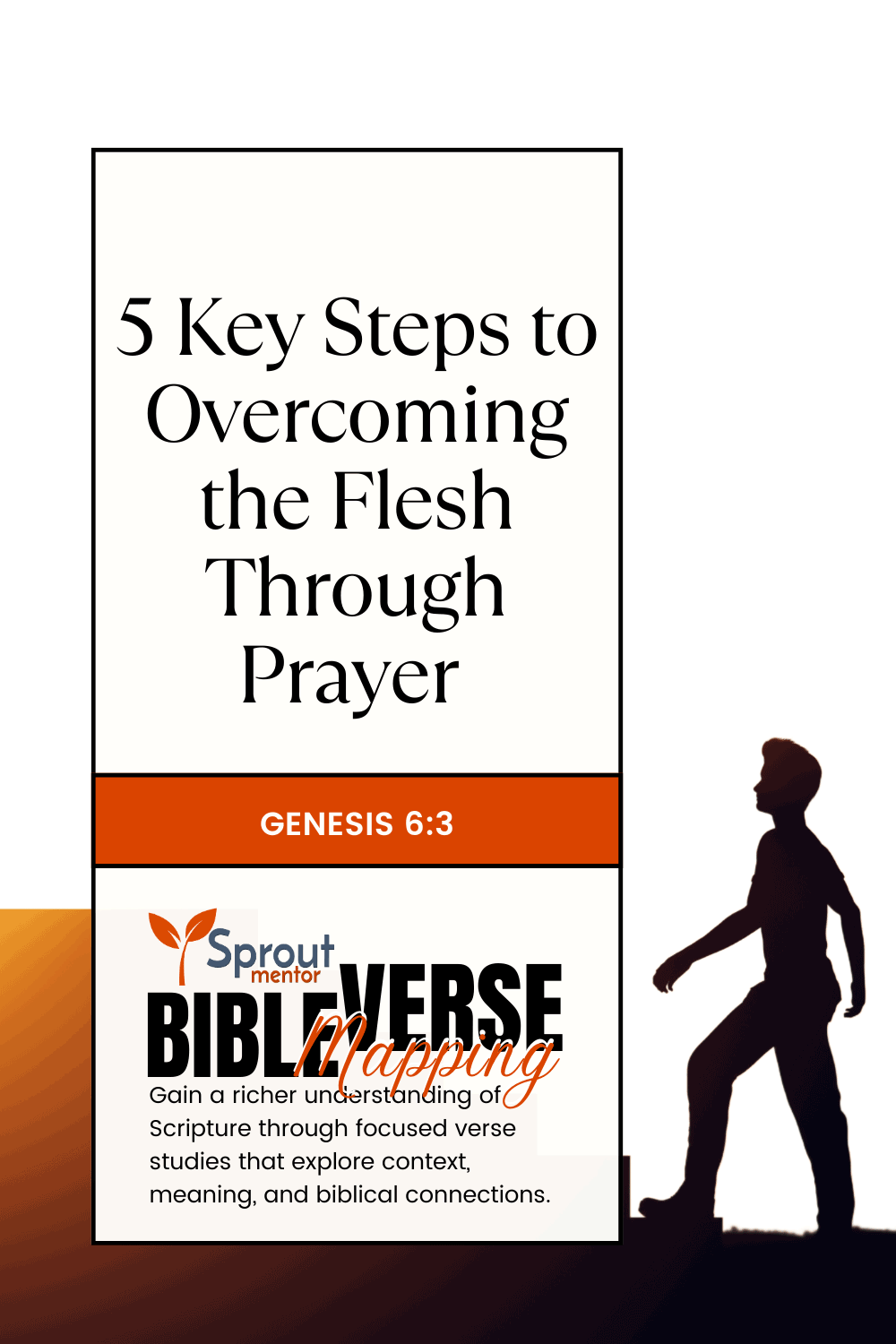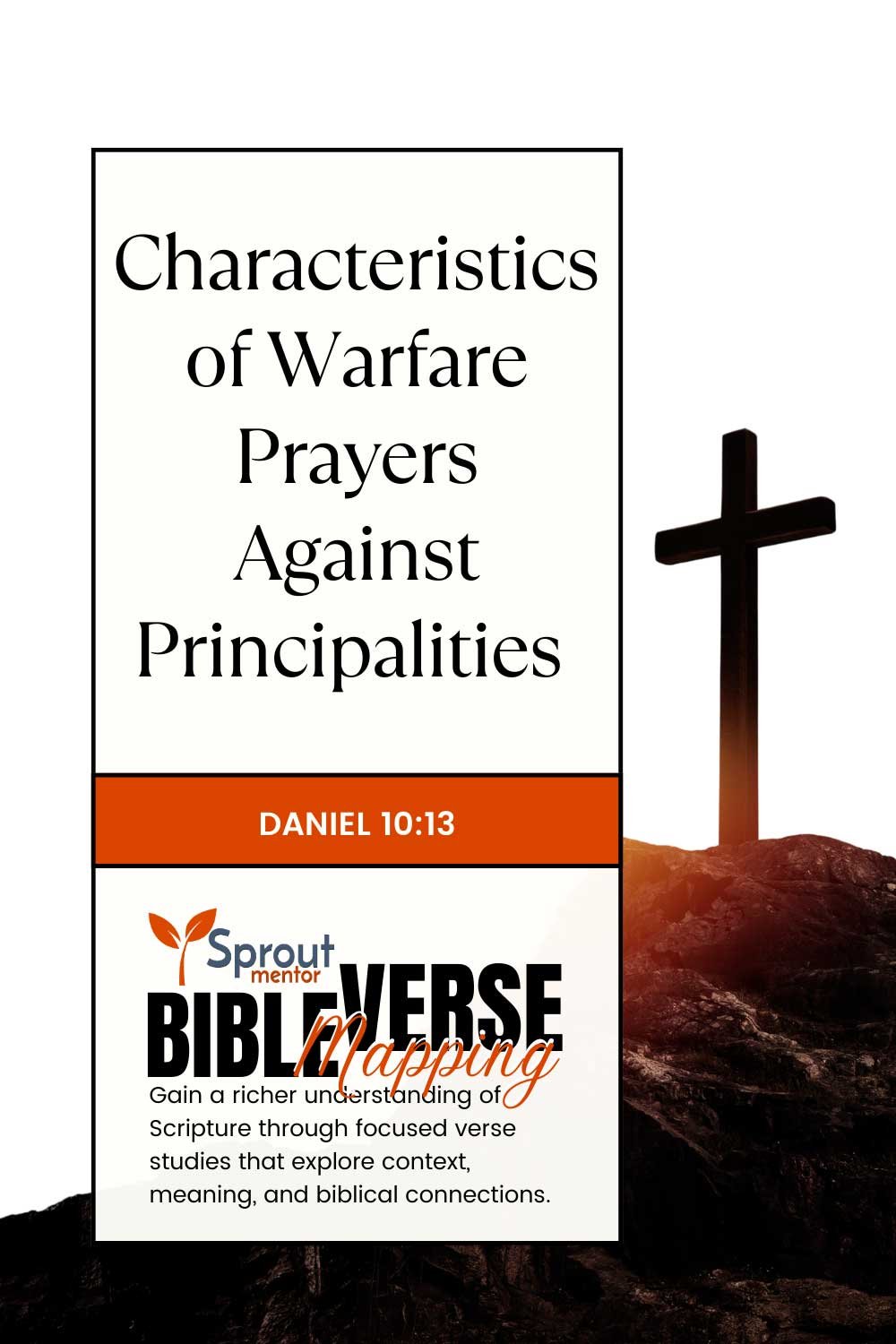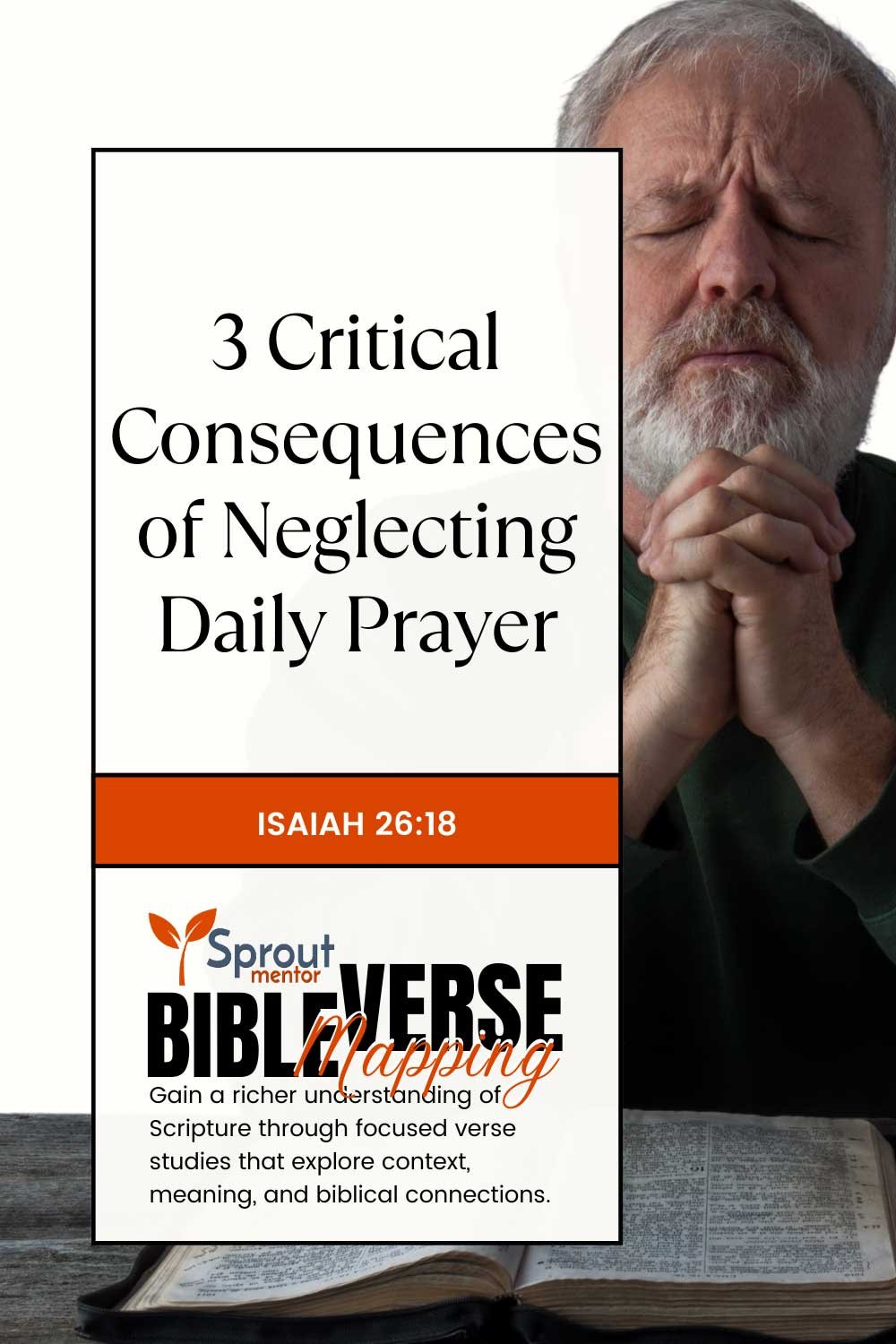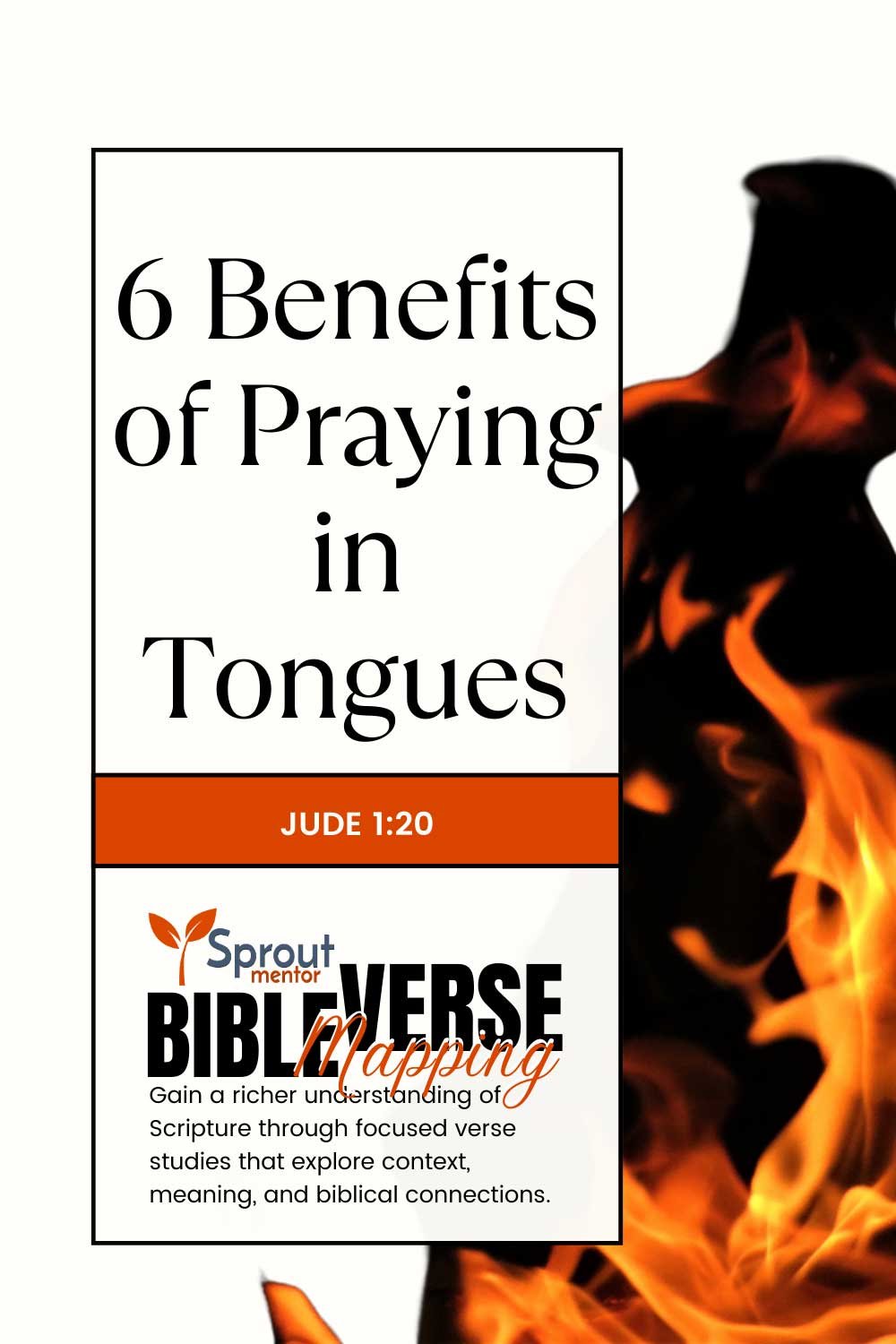4 Ways God Answers Prayers (1 John 1:1)

Share This Blog Post On:
Short on time, but big on faith? We break down complex topics into easy-to-understand chunks, making the Bible accessible to everyone. Join us for answers to your Bible questions and encouragement for your daily walk with God. Click here to grow your faith, one byte at a time!
“That which was from the beginning, which we have heard, which we have seen with our eyes, which we have looked upon, and our hands have handled, of the Word of life.” (1 John 1:1)
When you begin to pray and stay consistently at it like Daniel continually prayed three times a day (Daniel 6:10), you’ll begin to experience the four progressive ways below that God answers our prayers below as revealed in 1 John 1:1.
Way One: Information
“…which we have heard…” The journey begins with hearing as the Apostle Paul declares in Romans 10:17, “So then faith cometh by hearing, and hearing by the word of God“. Other than through the Word, hearing might also come through receiving godly counsel and the inner witness of the Holy Spirit.
This hearing represents our first exposure to God’s communication, and it isn’t enough for James 1:22 warns us, “But be ye doers of the word, and not hearers only, deceiving your own selves“. This first level of receiving information should propel us toward the next levels of deeper engagement with God.
Way Two: Experience
“…which we have seen with our eyes…” The progression moves from hearing to seeing—from theoretical knowledge to practical experience. This mirrors the transformation described in Job 42:5: “I have heard of thee by the hearing of the ear: but now mine eye seeth thee“. Also, there is Moses who moved from hearing about God to seeing His glory on Mount Sinai (Exodus 33:18-23).
Similarly, the disciples moved from hearing about Jesus to witnessing His glory firsthand, as Peter later testified, “For we have not followed cunningly devised fables, when we made known unto you the power and coming of our Lord Jesus Christ, but were eyewitnesses of his majesty” (2 Peter 1:16).
Therefore, this seeing represents spiritual perception and personal revelation. When we begin to “see” spiritually, Biblical principles come alive in our daily experiences, God’s presence becomes tangibly real and His promises begin to manifest in our lives.
Way Three: Engagement
“…which we have looked upon…” The Greek word used here for “looked upon” is θεάομαι (theaomai), which implies careful, intentional observation or deep contemplation. This is far more than casual glancing; it’s about deep engagement with God. This word carries a weight far beyond casual observation—it speaks of an intentional, sustained gaze that transforms the observer. For example, when Mary Magdalene “looked into” the empty tomb (John 20:11-12 KJV), she wasn’t merely glancing; she was engaging in a moment that would forever change her relationship with the divine.
This level of engagement marks the transition from being a spectator to becoming a participant in God’s divine agenda. It’s the difference between watching a feast and sitting at the King’s table. David understood this principle when he wrote, “One thing have I desired of the Lord, that will I seek after; that I may dwell in the house of the Lord all the days of my life, to behold the beauty of the Lord, and to enquire in his temple” (Psalm 27:4 KJV).
In this stage, we begin to do business with God—real, transformative, kingdom business. Like Jacob at Peniel who declared, “I will not let thee go, except thou bless me” (Genesis 32:26 KJV), we move beyond passive religious activity into active partnership with the Divine. This is where prayer becomes more than monologue; it transforms into strategic dialogue with heaven. We start to understand what it means to “stand in the counsel of the Lord” (Jeremiah 23:18 KJV), where we don’t just bring our petitions, but we begin to understand and engage with God’s purposes and plans.
Way Four: Possession
“…and our hands have handled…” This “handling” speaks of intimate familiarity and ownership. It’s the experience similar to Thomas’s experience with the risen Christ, who invited him to “reach hither thy finger, and behold my hands” (John 20:27). For example, when Peter was imprisoned, “prayer was made without ceasing of the church unto God for him” (Acts 12:5 KJV), and supernatural deliverance manifested.
This level of possession is characterized by the complete integration of God’s answers into our lives, authority in spiritual matters, and the ability to minister effectively to others. It manifests in the form of answered prayers becoming the norm rather than the exception, miraculous interventions in seemingly impossible situations, and divine wisdom for making decisions among others.
At this stage, our prayers transition from hopeful petitions to powerful declarations. We begin to see what the Apostle John meant when he wrote, “And this is the confidence that we have in him, that, if we ask any thing according to his will, he heareth us: And if we know that he hear us, whatsoever we ask, we know that we have the petitions that we desired of him” (1 John 5:14-15).
This isn’t presumption—it’s the mature faith that comes from intimate knowledge of God’s character and promises. When we truly “handle” the Word of life, we enter a realm where our prayers consistently yield tangible results. Like Elijah, who “prayed earnestly that it might not rain: and it rained not on the earth by the space of three years and six months” (James 5:17 KJV), we begin to see heaven respond to our earthly declarations.
In conclusion, this progression challenges us to embrace a prayer life built on the essence of mature faith: not just knowing about God, but knowing Him intimately and personally. Remember, this journey isn’t meant to be rushed. Each stage builds upon the previous one, creating a solid foundation for spiritual growth. As you pray and seek God, allow Him to guide you through these stages of spiritual development, always keeping your heart open to His leading.
Prayer: “Heavenly Father, ask that You would take me on this sacred journey from being a mere hearer of Your Word to one who truly handles and possesses it. Like Samuel, let me not only hear Your voice but recognize and respond to it with “Speak, Lord; for thy servant heareth” (1 Samuel 3:9 KJV). Open my spiritual eyes, Lord, that like Paul on the Damascus road, I might move beyond head knowledge into transformative encounters with Your presence. Let me not be content with surface understanding, but grant me the grace to look deeper, to contemplate Your truth until it becomes part of my very being. Teach me to engage with You at a deeper level. Like Jacob at Peniel, help me learn to do business with heaven, refusing to let go until Your blessing manifests. May I progress from simply knowing about You to truly knowing You intimately. Bring me to that place of full possession—where Your Word becomes flesh in my life, where my prayers carry authority, and where Your promises manifest in tangible ways. Let me, like Thomas, move from doubt to complete conviction, handling the precious truths of Your Word until they become my living reality. I ask this not for my glory, but that Your name might be magnified through a life fully yielded to Your purposes. In Jesus’ mighty name, Amen.
Continue Reading More On The Prayer Guides Below:
|







